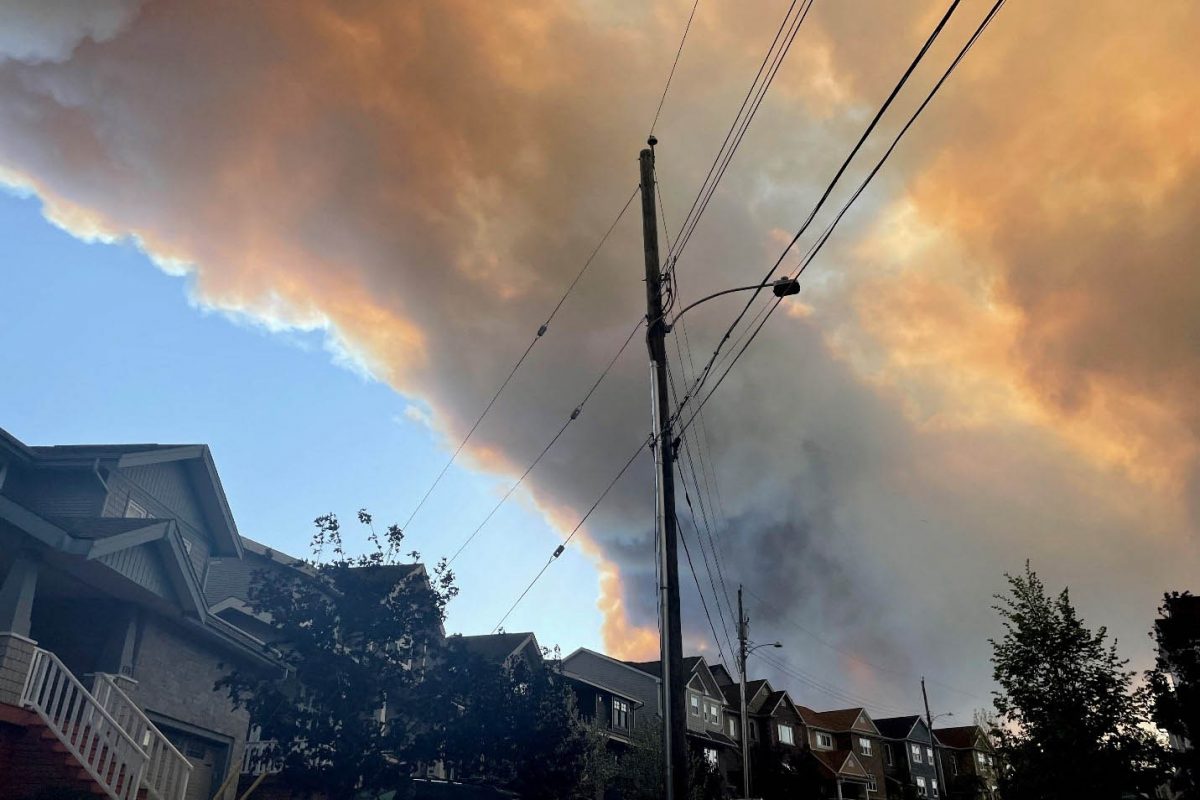HALIFAX, (Reuters) – A wildfire in the eastern Canadian city of Halifax led to mandatory evacuation orders for thousands of homes, and officials said residents will not be not allowed to return until advised by municipal authorities.
Halifax Mayor Mike Savage said the evacuations impacted about 18,000 people.
The orders issued Sunday cover areas of Hammonds Plains, Upper Tantallon and Pockwock. These suburban communities are home to many of the city’s workers and are situated about 15 miles from Halifax. Residents in nearby neighborhoods, which are surrounded by forest, were left uneasy throughout the night.
Prime Minister Justin Trudeau in a tweet yesterday called the wildfire situation in the province of Nova Scotia, where Halifax is located, “incredibly serious,” and said his government was ready to provide any assistance if needed.
Forest fires also led to evacuations of about 400 homes in the province of New Brunswick over the weekend, officials said. Mayor Brad Henderson of Saint Andrews, New Brunswick, said on Monday that while progress was made, the fire was still not under control.
Halifax Regional Fire and Emergency Deputy Chief Dave Meldrum told reporters on Monday morning the fire burning in the Tantallon and Hammonds Plains area was ongoing. The cause of the fire was still being probed and there were no reports of deaths or injuries.
Meldrum said about 100 firefighters battled the fires overnight, and said emergency crews would have a lot of work for “many days” ahead.
The city declared a state of local emergency late on Sunday after the wildfire caused evacuations and power outages, and authorities also shut several schools.
The wildfire, aided by strong winds and tinder-dry woods, damaged dozens of homes and hampered rescue services. The state of emergency would be in effect for seven days, unless lifted or extended, the municipality said.
Western Canadian provinces of Alberta and British Columbia have also been dealing with an unusually warm spring this year that sparked several out-of-control wildfires, cutting oil and gas production. But most of those fires have since been brought under control, helping oil and gas production to resume.
In the main oil-producing province of Alberta, the intensity of one of the most challenging wildfire seasons in years continued to ease, allowing oil and gas producers to restart production they had temporarily shut out of caution.
Crescent Point Energy CPG.TO said it restored the 45,000 barrels of oil equivalent of output it had previously paused, while Paramount Resources POU.TO said it restored most of the production it had curtailed due to the fires.










